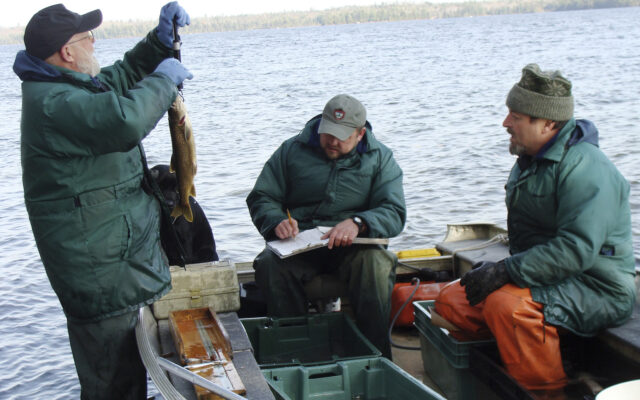
Maine’s compromise on North Zone bass tournament bans sets bad precedent
By Bob Mallard
In August, I publicly endorsed the Maine Department of Inland Fisheries and Wildlife’s proposal to prohibit bass tournaments in the North Zone. Native Fish Coalition, a group I represent, formally supported the proposal as well. As was the case with regard to my personal endorsement, the group thought it was supporting a complete ban. Unfortunately, this is not what we ended up with.
When faced with opposition, as is often the case, DIF&W caved to public pressure. Rather than an outright ban, it grandfathered five North Zone waters where bass tournaments had been held in the recent past. Basically, the state allowed anglers to continue doing what they have been doing but not make it any worse.
The same thing happened with the State Heritage Fish law, which, when implemented, did not stop DIF&W from stocking over wild native fish where it was already doing so. It just prevented the state from expanding it. And the Allagash waters were exempted due to pressure from ice anglers, as you cannot use live fish as bait on State Heritage Fish waters.
The same holds true for the recent North Zone live bait prohibition. Most waters where live bait was being actively used were exempted, including all waters open to ice fishing. We even grandfathered some waters that were not open to ice fishing but the use of live fish as bait during the open water season was “prevalent.”
The North Zone bass tournament prohibition proposal was pretty black and white. Several years ago, DIF&W and representatives from all sides of the debate were involved in a series of working groups that established baseline management goals for the next 15 years. Bass management in the North Zone was part of it.
I expected that the proposal would be met with opposition, and little support from the sporting community. Based on past experiences, support from conservation organizations was likely to be weak as well, as we never seem to be able to get everyone to the table in support of fish. The only question was whether DIF&W would stand its ground. Unfortunately, it did not.
By exempting five waters from the North Zone bass tournament prohibition, after the public had already commented on the proposal, DIF&W violated the intent, if not the law, of the Maine Administrative Procedure Act. In roughly 25 years of advocating for Maine’s fish, I have never seen a proposal changed to this degree without going back to the public for input.
DIF&W should have pulled the proposal and resubmitted it, amended for the five grandfathered waters. This was a substantial change to what is referred to as a “major substantive rule,” and it should have been treated accordingly. Groups such as Native Fish Coalition that formally supported the proposal as it was submitted to the public for input are now on record as supporting something they ultimately did not agree with.
By pulling the bill, DIF&W and the public would have been able to go back to square one. This would have provided an opportunity for both sides to state their case, offer alternatives and come up with something that was more amenable to all involved. Instead, DIF&W made a unilateral decision that left those who initially supported them swinging in the wind, and those who didn’t with the win.
Grandfathering what you are prohibiting sends the wrong message and sets a bad precedent. It confuses the masses, and rightfully so, as something is either bad or it’s not.
Before DIF&W opted to exempt five waters from the North Zone bass tournament prohibition, I, and I believe others, reached out to them with concerns that southern Somerset and Piscataquis counties did not belong in the North Zone under the current definition: “The North Zone contains an abundance of wild and native fish populations.”
Three of the five exempted waters are in southern Somerset County: Indian Pond in St. Albans, Great Moose Pond in Harmony and Wesserunsett Lake in Madison. The other two are in southern Piscataquis County: Schoodic Lake in Brownville and Sebec Lake in Dover-Foxcroft.
Somerset and Piscataquis counties are wholly in the North Zone, as are Aroostook and Franklin counties. Oxford and Penobscot counties, however, are only partially in the North Zone. Like Oxford and Penobscot counties, there are parts of Somerset and Piscataquis counties that should not be in the North Zone.
DIF&W should have pulled the proposal and formed a working group with representatives from both sides of the debate to discuss realigning the North Zone in regard to Somerset and Piscataquis counties. This would have eliminated the need to grandfather the five waters, and opened up more waters to bass tournaments in the future.
I am a wild native fish advocate. My position in this regard is absolute. However, it makes no sense to manage warm water resources or stocked nonnative trout fisheries in southern Somerset and Piscataquis counties as if they were wild native salmonid fisheries. Redefining the zones would have been the right thing to do, and for all involved.